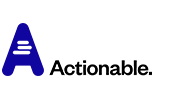In the past months, we’ve written a lot about change and agility—the urgency for organizational agility in a VUCA landscape, the change skills needed to thrive in the 21st century, and learning as a catalyst for agility. We’ve also discussed the messy and difficult work of culture change in organizations. For consultants and coaches, the ability to help your clients master change and become more agile is a key differentiator and competitive advantage as the pace of change continues to accelerate.
However, this need for agility also extends to consultants and coaches—not just to organizations. Simply put, you need to be adaptable yourself, before you can help your clients become more agile. If you’re trying to fit your client’s problems into your existing repertoire of solutions, you may be missing out on opportunities to make an impact with your clients, and to stay relevant in a rapidly changing consulting market.
Josh Bersin’s article The Disruption of Digital Learning outlines the seismic shifts that are happening in L&D, and the need for creating a learning architecture, which brings together multiple sources of content, data, and personalization.
A learning architecture “embraces many types of content, it collects data on interactions and activities, it uses intelligent systems to promote content and monitor employee usage, and it is personalized for everyone.”
Bersin also identifies what he calls “adaptive learning platforms”: “These are systems that operate more like intelligent, learning-centric content management systems that help you take lots of content, arrange it into micro-learning pathways and programs, and serve it up to learners at just the right time.” While Bersin identifies this as a trend specific for the L&D function, it has clear implications for the consultants and coaches who work with and support organizations.
This shift can represent a massive challenge, or an incredible opportunity. It requires consultants and coaches to embrace digital learning in a holistic way, and create bespoke programs that address client needs. Gone are the days (if they ever existed), of “one size fits all” learning solutions. In this context, digital learning needs to move beyond content delivery and into an architecture of learning that reflects the multidimensional structure of an organization—which is even more essential as organizations shift toward matrixed teams as a strategy for managing a VUCA landscape.
Adaptive learning platforms offer a 3D solution to learning, while traditional classroom style learning, and online learning systems are merely 2D—an interaction between teacher/content and the learner. A 3D solution provides a meta analysis of the efficacy of your offering that can be used to effectively influence business strategy and direction.
This shift suggests that consultants and coaches will also need to shift their thinking about their own learning systems. How do you stay current in a shifting market? One solution is to pursue additional qualifications and accreditations. While there’s nothing inherently wrong with this, and while accreditations may be essential for landing the big clients, proving your qualifications, and justifying your fees, this type of learning doesn’t reflect the realities of the VUCA world. You need learning that helps you today, in the meeting with your clients or prospects who are rapidly facing new challenges—not learning that that you can apply in 6 months after you’ve paid your fees, attended the lectures, and received your certification.
This doesn’t mean that you have to throw away the programs and offerings that have been successful in the past—but it does mean that you need to be thinking of ways to augment those programs, sustain learning beyond content delivery, and be able to demonstrate the value that you bring to an organization using metrics and data, not just smile sheets.
You may have to do some digging to determine the real challenges your clients are facing. Context matters. A team struggling with internal communication needs a different kind of support than a team struggling to communicate effectively with customers. Often, a culture problem is identified incorrectly as a communication problem, slumping sales figures are presented as the challenge when it’s really an issue of collaboration, or a recent confrontation is the catalyst for bringing in a conflict resolution program, when a tough conversation with the instigator is really what’s required.
Using an adaptive approach to consulting and coaching creates an opportunity to scale your practice, and grow your business in a sustainable way. It allows consultants to spend less time in the front of the room or delivering content, and more time acting as a trusted advisor to the organization. The data that is collected using adaptive learning platforms and other technologies can become a feedback loop that the consultant can use to help the organization identify high performers, trouble spots, and opportunities for creating more holistic solutions.
Digital learning systems present the opportunity to embed learning in day-to-day operations, collect data about the efficacy of the learning programs, and deploy learning at the moment it’s needed. Adaptive learning platforms can also help to diagnose ongoing issues such as slumping engagement, bottlenecks, and low performers.
While technology will continue to play a critical role in organizational change, it’s also essential to focus on relationships. Technology will not replace conversations as an essential component of relationship building—between you and your clients/prospects, and within the organizations and teams that you serve. Relationships, culture, performance management, coaching, and collaboration will remain essential elements of successful organizations, and to be effective in these areas, regular conversations will continue to be critical. Furthermore, these types of conversations can help to solidify learning, facilitate knowledge transfer within organizations, and establish the trust and intimacy required for a truly collaborative relationship.
Learning technologies, and specifically adaptive learning platforms, represent an opportunity to deploy learning more systemically throughout organizations. In general, organizations invest in training for the leadership team, and sometimes for their top performers. However, in a VUCA landscape, learning needs to deployed at all levels of the organization. Front line salespeople need the tools to adapt and adjust to new challenges in the moment, just as the leadership team does. Furthermore, to be delivering the best solutions for your clients, you need the tools to adapt in parallel.
As you help your clients and prospects embrace learning to become more adaptive and agile, it’s important to ensure that your business is also adaptive to the shifting demands of the market, in order to stay relevant and grow your business in a sustainable way.



